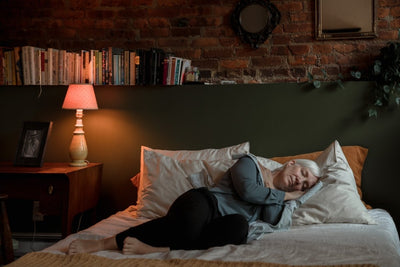Why Bed Alarms Are Helpful for Elderly and Dementia Patients
Every responsible caretaker must ensure that assisted living and home for the elderly facilities are safe spaces for their vulnerable constituents. While it may be rewarding, this job requires you to constantly monitor your patients, which can eventually cause stress or burnout.
Fortunately, thanks to modern technological advancements, such as bed alarms, you can efficiently ensure your elderly patient's safety.
This article will discuss what bed alarms are and how they're beneficial for elderly and dementia patients. We'll also discuss the different types of alarms.
What Are Bed Alarms?
These devices detect their movements and alert the caregiver if they attempt to get out of bed alone. Bed alarms for elderly patients allow caretakers to handle other essential tasks or rest alone while the patient is asleep.
Besides in hospitals and nursing homes, you can also install a bed alarm if you're living with an elderly loved one. And we strongly recommend selecting the right bed alarm to ensure you provide better healthcare solutions and allow flexibility on the caretaker's part.
3 Benefits of Bed Alarms for Elderly Patients
Now that we’ve discussed the uses and functions of bed alarms for elderly patients, this section will tackle the benefits of installing these devices.
1. Allows More Flexibility for Caretakers
While being a caretaker means constantly monitoring your patients or loved ones, you'll also eventually need to rest, accomplish other tasks, and give them alone time while they're eating.
Fortunately, installing a bed alarm for your elderly loved one or patient can give you peace of mind and immediately alert you when they need your help. We highly recommend using the wireless option because it's more convenient and gives you more independence.
2. Prevent Falls and Injuries
Falls and injuries are one of every caretaker's and loved one's nightmares because the risk of falling increases as people grow older or dementia worsens.
Fortunately, you can prevent these tragic accidents when you install a bed alarm for your elderly or dementia patients. These devices can immediately alert you when your patient or loved one needs assistance.
3. Prevent Patients from Wandering
People with dementia may try to get out of bed and intentionally or accidentally try to leave home or the facility because they think they're lost and are looking for a way home. No caretaker or loved one would want to discover their patient has gone missing. Fortunately, a bed alarm urgently notifies you once they get up so you can prevent them from wandering off.
3 Types of Bed Alarms
Whether you're a caretaker or a relative caring for an elderly patient, you must ensure to find the bed alarm suitable for your needs. This section will discuss the three types of this vital device.
1. String Alarm
This bed alarm has a box-shaped unit with a string attached to it. Caretakers place the line on the patient's clothes and the box on the bed's headboard. Once the patient moves on the bed, the string pulls loose and triggers the alarm.
2. Mattress Pad Alarm
Caretakers place this bed alarm under the patient's bedsheet, where the device triggers an alert if it detects changes in weight and pressure. The sounds stop after the weight returns or if you adjust the settings manually.
These alarms are available in wired and wireless options. You can install this bed alarm in another room so the patient won't get startled when the alarm sounds. You can also adjust the volume to comfortable levels.
3. Passive Infrared Alarm
On the other hand, this bed alarm allows more free movement for the patient within the bed because you can install the device on the headboard or the side of the bed. If the patient gets up, the infrared beam senses the motion and alerts the caretaker.
An Alert and Safe Space
While bed alarms for the elderly may benefit patients and caretakers, you must always consider your's and your patient's needs before buying one. By installing this vital device, you can ensure your loved one's safety and peace of mind.
HearGlow produces the latest guides and news for senior care—read our other content today!
Related Articles
Read more Bedroom Safety for Seniors articles.









